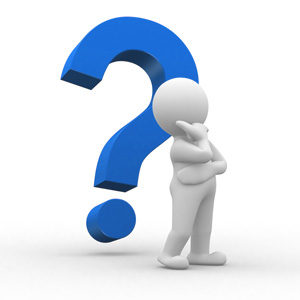With that in mind, I thought I would address the Top 10 things new authors should know about the publishing industry, and explain how things really work. Hopefully, this will save you a lot of time, effort and frustration.
1. Books are not automatically stocked by bookstores. In 2010, more than 3 million ISBN numbers were assigned. That means three million different book titles. The average large bookstore stocks about 110,000 titles. Not every title that is released is going to be stocked by a bookstore.
2. Publishers don't control which books get stocked in bookstores. Bookstores decide for themselves which books they will stock. The publisher can't make them stock anything. Publishers submit titles, make them available for distribution and in some cases pay for shelf space, but they do not decide which titles you see in a bookstore.
3. Most books are not sold in bookstores. Bookstores sell a lot of books, but most books are sold online or through retailers other than traditional bookstores.
4. If your book doesn't have an ISBN or distribution, it's not going to get sold through a bookstore. If you are looking for wide availability for your book, it has got to have the kind of distribution publishers can provide. There are some titles that are the exception, but that is just what they are: rare exceptions.
5. Ebooks are not replacing printed books, yet. According to the last figures I saw, ebooks were about 12 percent of the book market.
6. Pricing your ebook at 99 cents doesn't mean you'll sell a million copies. These gimmicky sales strategies work a handful of times. By the time you have heard about it, it has been done and everyone else has gotten the same idea. Only eight authors have sold more than a million copies for the Kindle on Amazon. That's right. Eight.
7. Low book prices don't necessarily translate to higher sales. This past weekend I shopped at a bookstore that was going out of business. Every book on the shelf was one dollar. There were still many books on the shelf that had not sold, not even for a dollar. If a book is too cheap, many readers wonder "what's wrong with it?"
8. For the most part, selling books is a slow process. Many authors expect to sell thousands of books the moment they reach their book's release date. If nobody knows about your or your book before the release date, they aren't going to know on the release date, either. It takes time to build your reputation as an author, and sales. I bought a business book at the $1 sale I mentioned earlier, and after reading it, I thought "this is a pretty good book." I checked the sales ranking on Amazon: it was ranked in the 1 million-plus range, meaning it's not moving many copies through Amazon, if any.
9. The average book title in the U.S. sells about 200 copies. More than 651 million books were sold in the U.S. in 2011, according to Nielsen bookscan. If the 2010 numbers hold up and about 3 million titles were released, that means the average book title sold about 217 copies last year. The number could be lower, because that 3 million titles figure is only taking into account new titles being released, not titles that were released in previous years that sold in 2011. A book by a new unknown author is generally considered a success if it sells 5,000 or more copies, UNLESS it's a book released by a celebrity of some kind, then those numbers would be considered dismal.
10. There is no magic formula for selling books. I often hear from authors who ask me to tell them how to quickly sell thousands and thousands of books, or make their book a bestseller. Here is the secret: write good books, target your niche audience, and work really, really hard to make you and your book known. You'll sell books, but there is no guarantee you'll become a bestselling author.
Of course, I have covered a lot of this information before in previous blog posts, but I thought it would be helpful to compile a Cliff's Notes version here that would address some common misconceptions. You can have success as an author even if your book isn't in every bookstore in the country, or you aren't featured on a national TV or radio show. The publisher I work for recently had a title on the NY Times Bestseller list for non-fiction, but I work with authors who have sold many more copies than that title has, although they have been at it for a longer period of time. Remember, patience and persistence win the day!






4 comments:
Good article. As a first-time published author, I'm learning the very things you've alluded to first hand. This may take awhile! Thanks.
Concise, realistic presentation. Thanks, Terry. Good job!
Excellent summation. I've learned some of these things the hard way, but then again, that's how most of us learn.
Thanks so much for sharing.
I'm in the trenches writing, writing, writing. Some dreaming involved in there as well.
What a reality check.
Sometimes, those are needed.
Hard work, due diligence and some prayer.
Thanks for the article!
Post a Comment